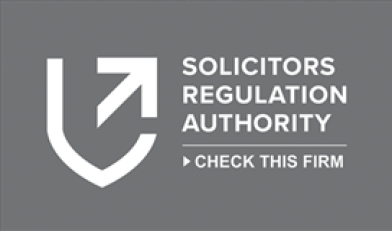If you’ve ever had a mortgage, particularly with a sub-prime lender or a second charge loan, you could be owed money. This is often due to mis-selling, hidden commissions, or more commonly than you might think, being overcharged.
Many people don’t realise they’ve been affected, but the financial impact can be significant and long-lasting.
We’ve put together this guide to help you understand the types of mortgage claims that exist, when you might be eligible to claim, and why now is the right time to take action.
Who Can Make a Mortgage Claim?
If you’ve had a mortgage in the past, particularly between the early 2000s and mid-2010s, you might have grounds to make a claim. This is especially true if:
- You used a sub-prime lender (i.e. not a high street bank or building society)
- You were given a mortgage or loan that didn’t suit your financial circumstances (Mortgage mis-selling)
- Your mortgage broker earned a commission without your knowledge (Hidden commissions)
- You were not properly informed of the risks involved (Mortgage mis-selling)
- When calculating the payments you made over the term of your mortgage, the interest and charges exceed what was in your original agreement (Breach of contract)
Sub-prime lenders targeted borrowers who may have struggled to get credit elsewhere, often self-employed individuals or those with adverse credit histories. These lenders typically charged higher interest rates and offered poor advice, leading many people into unaffordable long-term debt.
However, when evaluating the agreements relating to mortgages and secured loans, we have discovered that the fees charges and calculations of interest were often not in line with what was proposed in the mortgage credit agreement.
Past Examples: Northern Rock and Together Mortgages
Two well-known examples of lenders involved in mis-sold mortgage claims are Northern Rock and Together Mortgages.
Northern Rock: Before the 2008 financial crisis, Northern Rock was notorious for offering ‘Together’ mortgages, which allowed borrowers to take out up to 125% of their property’s value. While this helped people onto the property ladder, it left many in negative equity with unaffordable repayments. The high-risk lending model eventually contributed to the bank’s collapse.
Further investigation found that not only were these unsecured loans actually secured against the property, but the calculations relating to the loan and mortgage were incorrect and in Northern Rock’s favour.
Together Mortgages (not to be confused with Northern Rock’s ‘Together’ product): This lender has been scrutinised for high fees, expensive interest rates, and poor affordability checks. Many borrowers were not made fully aware of the risks and long-term costs.
Regardless of whether mis-selling took place, detailed forensic analysis of the mortgage or secured loan agreements can often uncover undisclosed commissions or overcharging of fees and/or interest.
Other examples include SPML (Southern Pacific Mortgage Ltd) and GE Money, both of which have been involved in past mis-selling and overcharging complaints. If your mortgage wasn’t from a mainstream lender, it’s worth checking whether you could claim.
In some cases, analysis of high street lender statements has uncovered overcharging.
What About Secured Loans and Second Mortgages?
If you took out a secured loan or second mortgage, you could also be eligible to claim – but the value of the loan matters:
- Under £30,000: These often fall under consumer credit regulations, which means you had added protections. If these weren’t followed properly, or you weren’t given fair advice, you may have grounds for a claim.
- Over £30,000: Even though consumer protections differ, you may still have a valid complaint if the lender failed to assess your affordability correctly or pushed you into a high-cost loan you couldn’t sustain.
These loans were often sold as a way to consolidate debts, but many people ended up paying far more over time, sometimes with variable rates that spiked unexpectedly.
However, in all cases, whether a first charge mortgage or a second charge loan, overcharging represents a fundamental breach of contract. This is not a regulatory issue, it is a contractual issue which means:
- Establishing what you are owed (plus statutory interest)
- Making a complaint
- Taking legal action if required
The Second Charge Mortgage Market
The second charge market refers to loans secured against your property that sit behind your main mortgage, essentially a second layer of borrowing. These loans became increasingly popular post-2008 when people needed to access funds but didn’t want to remortgage (usually due to mortgage redemption penalties).
Unfortunately, second charge loans were often:
- Poorly explained
- Given to people with limited means to repay
- Sold with excessive fees and broker commissions
If your lender or broker failed to make sure the loan was affordable and in your best interest, you could be entitled to compensation.
Furthermore, many consumers have taken secured loans unaware that they had PPI attached which has not been claimed for and may still be recoverable through litigation.
Time Limits Apply – Don’t Delay
Even when discussing breach of contract, there are time limits involved in making a mortgage claim, often linked to when you became aware something was wrong. That’s why we encourage anyone who had a mortgage, second mortgage, or secured loan to get in touch as soon as possible.
Even if you’ve paid it off, you could still claim.
Check If You’re Eligible Today
At Claim My Loss, we specialise in helping people understand their rights and recover the money they’re owed. Whether your mortgage is still running or ended years ago, we can review your case and guide you through the process.
Visit our Mortgage Claims page to check your eligibility today.








